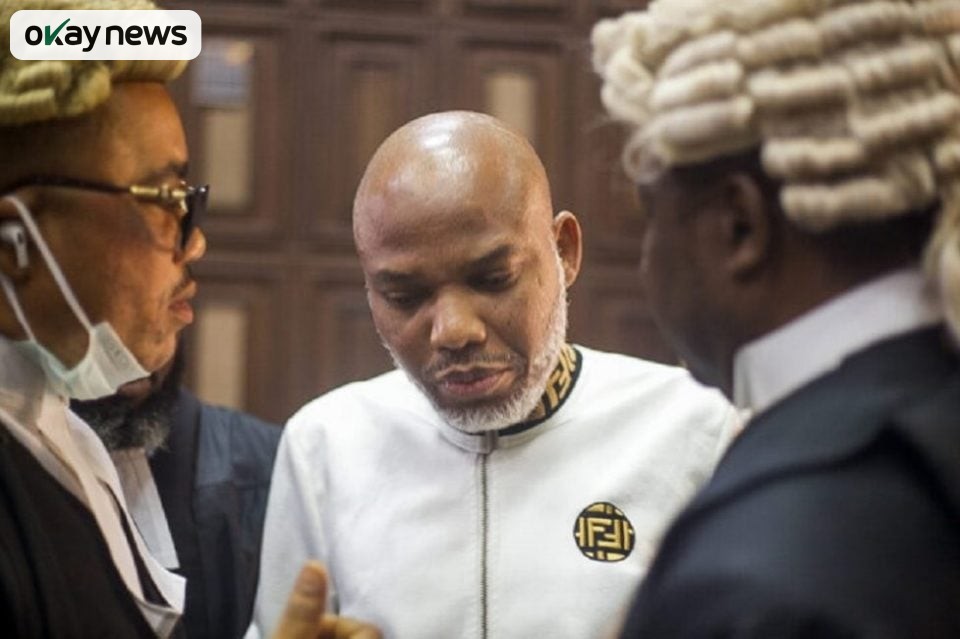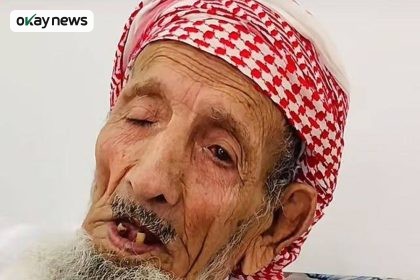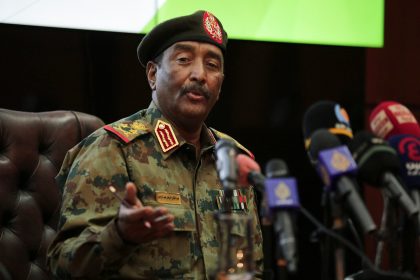The Federal High Court in Abuja, Nigeria’s capital city, witnessed heightened tension on Thursday as Justice James Omotosho ordered that the long-standing terrorism trial of Indigenous People of Biafra leader, Mr. Nnamdi Kanu, proceed in his absence following what the court described as disruptive behaviour. Okay News reports.
The case, which has drawn national and international attention due to its complex political and security implications, reached a dramatic point when the judge began delivering judgment without the defendant present. According to the judge, Mr. Kanu’s conduct had become “unruly,” prompting the decision for proceedings to continue without him.
Earlier in the session, the court dismissed three fresh motions filed by Mr. Kanu, concluding that they lacked merit. It was during this ruling that Mr. Kanu raised his voice, insisting that the trial could not continue because he had not submitted his final written address.
In a heated objection, the Indigenous People of Biafra leader challenged the court, declaring, “‘Which law states that you can charge me on an unwritten law? Show me. Omotosho, where is the law? Any judgment declared in this Court is a complete rubbish.’”
He further accused Justice Omotosho of being biased and lacking understanding of legal principles.
Following the disruption, the court stepped into a brief recess. Upon return, the prosecution team, led by senior legal practitioner Mr. Adegboyega Awomolo, urged the judge to continue the trial without the defendant, citing persistent interference and obstruction coming from Mr. Kanu.
In his ruling, Justice Omotosho explained that while the Nigerian Constitution grants every defendant the right to be physically present during their trial, persistent misconduct can lead the court to proceed in their absence.
The judge stated, “If a defendant misconducts himself or acts in an unruly manner during the course of his trial, his trial can be conducted in his absence.”
He further stressed that the Court of Justice is regarded as a sacred institution, describing it as “a temple of God,” and noted that Mr. Kanu had displayed similar behaviour in previous court appearances. The judge added that the defendant had already indicated he would not present a substantive defence and that Thursday’s proceedings were scheduled for judgment and possible sentencing.
Following the court’s directive, security personnel escorted Mr. Kanu out of the courtroom, enabling Justice Omotosho to proceed with delivering the ruling in the historic case that continues to shape public discourse on national security and separatist movements in Nigeria.







